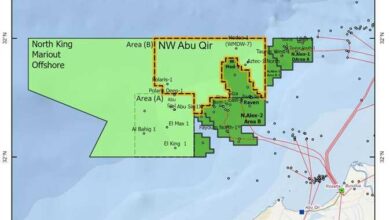“Men are free to make history, but some men are indeed much freer than others." C.W. Mills (1963,p.25)
This quote explains how subtle the concept of power is. It is so interconnected with other factors and so changeable and intricate, that no true formula for obtaining and keeping power exists.
The concentration of power differs from one nation to the other, and there are some distinct differences even within every country. C.W. Mills explains that the power dynamics in the USA are concentrated in political, military and economic institutions, whereas the other subpowers: family, religion and education, are shaped by the big three.
This mapping of the power factors governing the USA according to C.W Mills can also help us understand the dynamics of power in a country like Egypt. It is crucial to decide which institutions are to be the most powerful, and what is their relationship with other subpowers. To illustrate the division of power in Egypt, it is important to note, that Egypt has been ruled directly and indirectly by the military since 1952.
In order to understand how Muhamed Morsi lost control of the country in just one year, one has to understand the dynamics of power in a country like Egypt, which Morsi himself could not grasp: he only stayed in office from June 30, 2012 till July 3, 2013.
The effective players in the political scene in Egypt are the military, the police and the businessmen. The subpowers are the Islamic movements including the Muslim Brotherhood and the Salafis, the liberals, the intellectuals, the youth, Christians and ordinary citizens.
The military, which effectively has been in power since 1952, has a huge influence over the Egyptian economy. The president has also been recruited from the army since 1952, as well as many governors, who are either from the army or from the police. Representatives of the Egyptian Armed Forces hold many influential positions in the local councils, as well as in the Ministry of Foreign Affairs.
Also, a number of business tycoons have effective control over large sectors of the economy. Many of them control the media, are owners of newspapers and satellite channels. They try to influence the public opinion directly and indirectly, promoting attitudes and approaches that can best serve their interests. It is clear that the economic factor is the most important one among the subpowers, the masses and the young people.
However, all the factors within the system of power overlap considerably. It is hard for any single factor to control the situation, and this interdependence and interconnectedness creates a subtly intricate network. When president Morsi came to power, he had to deal with all these entangled, interconnected, interrelated factors. Throughout the period he spent in office, he started testing the water, and had a very cautious start. In October 2012, Morsi decided to remove the Public Attorney from office. His decision was unconstitutional, and he had to step back from it under pressure from the judges. In February 2013, the Supreme Constitutional Court ended the term of the people’s assembly, due to flawed election procedures. The majority was represented by the Muslim Brotherhood and Salafi parties, which represented 67 percent. Morsi cancelled the ruling of the SCC in March 2013. However, he stepped back from this decision as well. This way, the first power conflict appeared on an early stage in his presidency – Musi did not realize that the old regime was still in control of many institutions. Clearly, replacing the old regime with a new one is not that easy. Even though President Mubarak was toppled in 2011, the policies, the rules, and the culture that had existed since 1952 did not disappear once a new president took over.
With regard to the economic situation, separating business from politics in Egypt is a hard task, as many of the influential businessmen had close relations with the Mubarak regime. Some areas of the economy were flourishing under Mubarak – according to Reuters, Egypt's GDP growth reached 5.8- 6 percent in 2010, but the distribution of income was uneven. When Morsi came to power, Hassan Malek, a highly influential figure within the Muslim Brotherhood, began a new project, called “Ebdaa” or “Begin,” from which many powerful representatives of the old regime were excluded. Among them was Naguib Sawiris, an Egyptian billionaire, very popular among intellectuals and artists, and the owner of one of the leading newspapers, as well as a satellite TV channel. Sawiris was then accused of tax evasion, after which he decided to sell some of his projects and leave the country. This incident, along other similar news created tension and discomfort among the business community and foreign investors.
The disagreements and conflicts unnecessarily created by Morsi caused him to lose many of the borderline supporters, who chose him because they wanted change. At the same time, many of those unwilling to participate in politics started to feel uncomfortable. Morsi couldn’t present concrete achievements that would help him gain popularity after he marginally won the elections by 51.7 percent. He desperately needed to earn popularity, and he couldn't handle the pressure from unnecessary conflicts.
Having failed to deal with the power players on the political scene, the president had disagreements, clashes and conflicts with the army, the judges, Ministry of Interior, influential businessmen, media figures, artists and Christians.
The movement behind June 30, 2013 was gaining momentum, as the president was criticized severely in almost all media outlets. Many businessmen aided June 30 through satellite channels, wishing to get rid of the president. Many people felt that Morsi was not the type of leader to lead a country as big as Egypt. The president did not realize how entangled the situation was, reactting as if nothing was happening. He could not see that he was losing control. His allies tried to help him, so they attacked the organizers of the June 30th demonstrations. The situation got more complicated, as polarization has never helped any politician to settle their issues. By June 2013, the country became divided between the proislamic president and most of the country's institutions, led by the army, the liberals, the leftists, political parties, ordinary citizens, Christians, and many other subgroups. Due to the power of the army and businessmen, Morsi became helpless and his end was near. The inability to read the power factors or deal with the power players in any political setting, will definitely bring any political figure to the end of his career.




